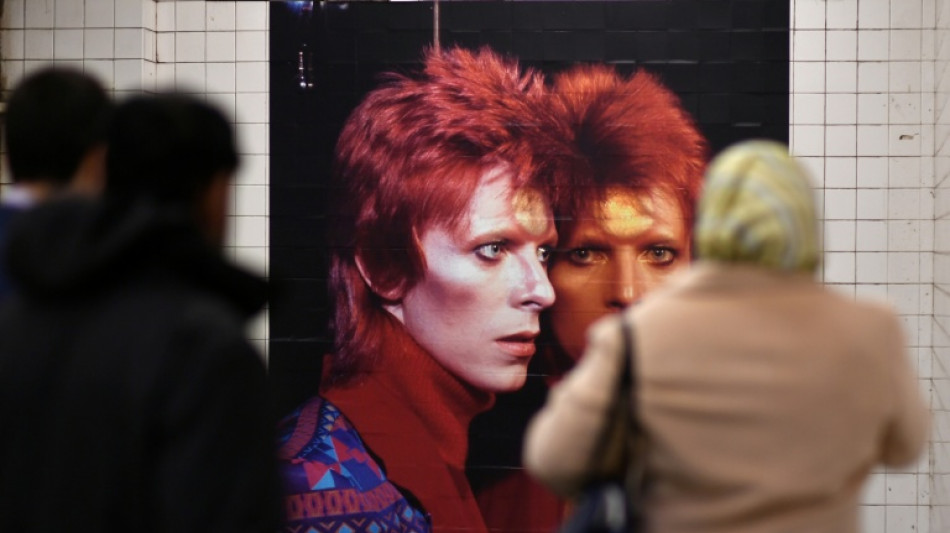
SCS
0.0200

David Bowie was working on an "18th century" themed musical at the time of his death, which will feature in a new London centre dedicated to the seminal British artist, the BBC reported Friday.
The V&A museum will open the free-to-access home for Bowie's vast archive in Stratford, east London, on September 13.
One exhibit will be notes from a previously unknown project called "The Spectator", which he described as an "18th Century musical".
The work showcased Bowie's fascination with art and satire in 18th Century London, and drew inspiration from criminals of the time, including notorious thief "Honest" Jack Sheppard, according to notes shared with the BBC.
The walls of a locked room in Bowie's New York office were adorned with post-it notes for the project when he died in 2016, and were left unseen until his belongings were archived.
They will now be available to view at the centre, which will also host guest-curated displays, notably from disco pioneer and super-producer Nile Rodgers, who collaborated with Bowie on his "Let's Dance" album.
His selections include a suit, made by opera costume designer Peter Hall, worn during the "Serious Moonlight" tour. Rodgers also picked out rare photographs and personal correspondence reflecting their shared "love of the music that had both made and saved our lives".
Brit Award-winning indie rockers "The Last Dinner Party" will also curate, showcasing objects primarily from the 1970s that highlight how Bowie inspired artists to "stand up for themselves and their music".
The centre has over 90,000 items tracing Bowie's career, with visitors able to explore a trove of 414 costumes and accessories, nearly 150 musical instruments, extensive notes, diaries, lyrics, and unrealised projects.
"In the centre, we want you to get closer to Bowie, and his creative process than ever before," said Madeleine Haddon, the collection's lead curator.
"For Bowie fans and those coming to him for the first time, we hope the centre can inspire the next generation of creatives," she added.
Starting with "Space Oddity" in 1969, Bowie scored major hits over more than four decades, ranging from "The Jean Genie" and "Heroes" in the 1970s to "Let's Dance" and "Modern Love" in the 1980s to more recent hits like 2013's wistful "Where Are We Now?"
Many of became era-defining songs around the world, establishing Bowie as a popular music legend.
Bowie died of liver cancer two days after the release of his 25th studio album, "Blackstar," which had come out on his 69th birthday.
M.Jelinek--TPP